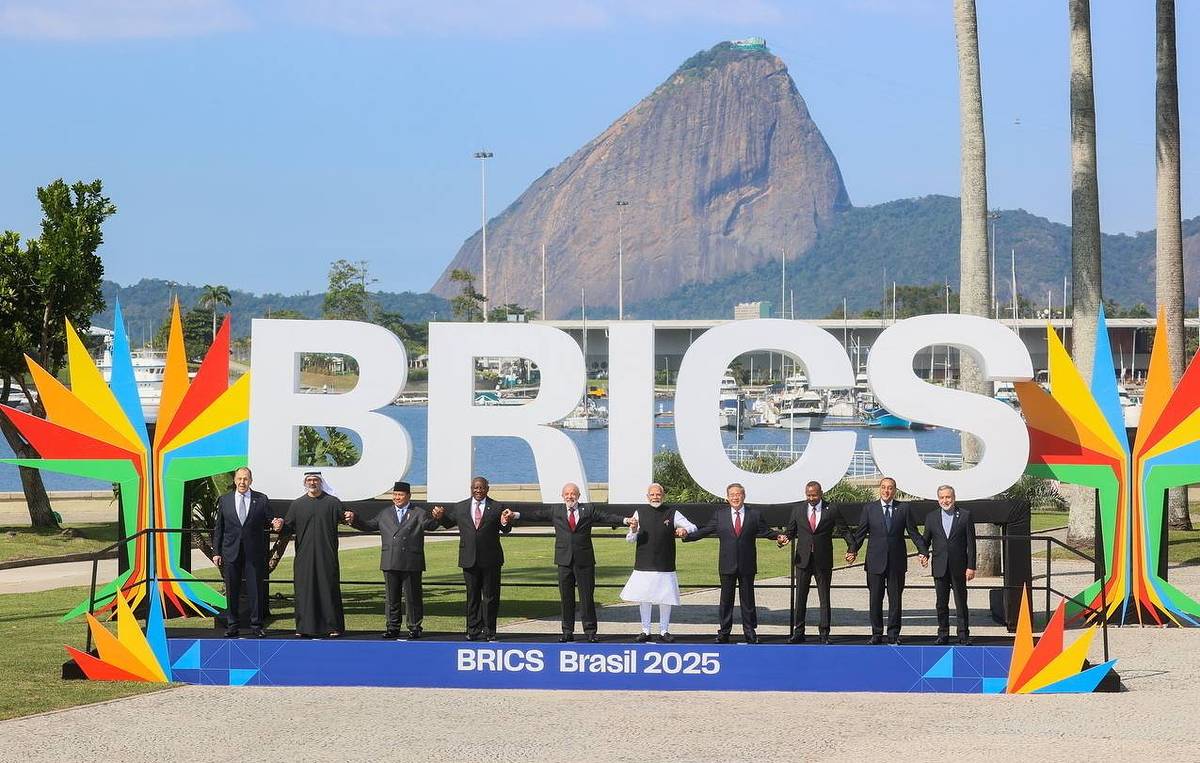By Tass
Other Latin American countries are showing growing interest in the BRICS New Development Bank, Alexander Shchetinin, director of the Russian Foreign Ministry’s Latin American department, told Izvestia. Earlier, Colombia joined the financial structure.
“No doubt, there is obvious interest in the New Development Bank as a financial institution. All decisions on inviting this or that country to join are being made at relevant levels: member states, the bank’s founders, the bank’s members. And this is how they consider individual invitations or interest displayed by various countries. Undoubtedly, there is more active participation by Latin American countries in the institutions being established by BRICS, including the financial and economic ones. This is a positive development due to the countries of the Global South realizing the new position of this group, representing the global majority which reflects the contemporary trends and reality unfolding in the modern world,” the diplomat told Izvestia.
BRICS countries represent the global majority and have a clear stance with regard to global conflicts. They oppose Western countries and their accomplices. This solidarity proves that, regardless of cultural differences and frequently diverging interests, the countries are united in standing up for their position on behalf of the global majority, Vladimir Shapovalov, deputy director of Moscow State Pedagogical University’s Institute of History and Politics, told the newspaper.
Izvestia: Number of EU supporters of dialogue with Russia on the rise
Support for direct talks with Russia is increasing in the European Union. In Germany and other EU countries, there are increasingly more “sober-minded” voices, realizing that the absence of dialogue with Moscow contradicts their own interests, Russian Deputy Foreign Minister Alexander Grushko told Izvestia. Earlier, the presidents of Russia and France held their first conversation in the past 2.5 years. The presidents of Slovenia and Slovakia are calling for dialogue with Moscow, while Austria proposes to resume purchases of Russian gas following the end of the Ukraine conflict. The positions of those supporting dialogue will also be bolstered by the anticipated increase in NATO countries’ military spending to 5% GDP as additional costs will be incurred on taxpayers, which should affect election results.
“Unfortunately, these days, we see that the European Union’s policy course is being determined by the aggressive majority. That said, we are registering increasingly more sober-minded voices, and this is reflected not only in statements by politicians, discussions are also held at the level of political parties. We are observing that many political forces in various European countries, including, for example, Germany, fully understand that the absence of dialogue with Russia contradicts the interests of these countries and undermines their security situation,” Grushko said.
France has a quite clear assessment of the geopolitical situation, being aware that dialogue with Russia is needed sooner or later, German political scientist Alexander Rahr told Izvestia. In his opinion, Paris, more frequently than Berlin, shows an approach in favor of realpolitik. According to the expert, Germans still believe that they would be able to convince everyone and locate remaining resources to support Ukraine. He does not rule out this position becoming shaky in the near future but currently Germany is assuming leadership with the main goal of containing Russia.
Militarization and increased defense spending up to 5% GDP may trigger a sharp division in European society, Andrey Kortunov, an expert with the Valdai Discussion Club, believes.
“If one supposes that these countries will take this matter seriously and try to bring their spending to 5% GDP in 10 years, then socio-political consequences will be very dire. This will most likely sharply strengthen right-wing populists and various sudden situations are possible, such as government crises or snap elections,” he told Izvestia.
Neither one should forget about Ukraine’s conflict on the matters of historical memory with Poland, the issues of the Hungarian minority in Transcarpathia and the halting of gas transit through Ukraine which impacted Slovakia. The “Trump factor” is also involved. Seeing his aspiration for dialogue with Russia, those still having doubts are becoming more active, Vice-Rector of the Diplomatic Academy of the Ministry of Foreign Affairs Oleg Karpovich noted.
“Gradually, inspired by Trump’s example, other leaders of the disintegrated anti-Russian coalition will follow. Certainly, over this time, we have established particularly warm contacts with the leaders of Hungary and Slovakia who are close to Russia ideologically and think pragmatically,” he told Izvestia.
The expert concluded that in the future, this trend won’t be restricted to Eastern European countries. In the context of the altered US policy, the Russophobic hysteria will be replaced with a realistic and practically oriented approach to the future of European security.
Vedomosti: Musk declares war on Trump, Republicans, Democrats
On July 5, Elon Musk, billionaire and former advisor to US President Donald Trump, announced on the X social network that a new political party had been formed in the US. “When it comes to bankrupting our country with waste & graft, we live in a one-party system, not a democracy. Today, the America Party is formed to give you back your freedom,” he wrote.
